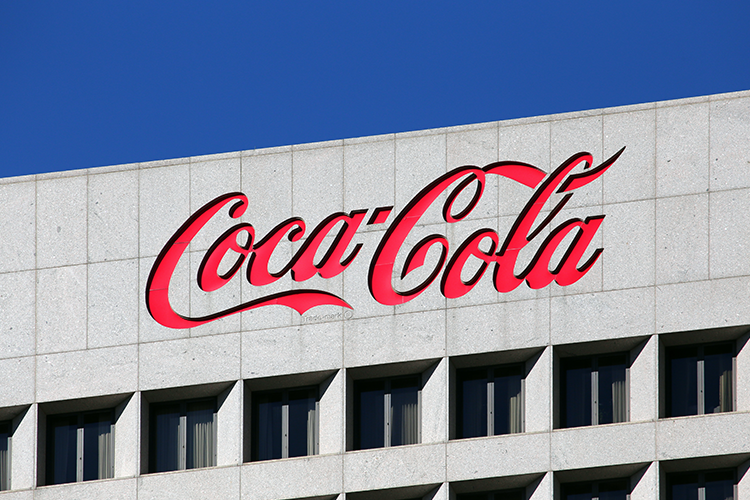Blog
Is Coke influencing journalism?
 ‘Big soda’ funding research to divert attention away from negative health impacts by sugary drink consumption is not new news.
‘Big soda’ funding research to divert attention away from negative health impacts by sugary drink consumption is not new news.
And it seems they’ve thrown some cash toward influencing those that report on the topic, too.
An investigative article, published in The BMJ, revealed Coca-Cola covertly funded journalism conferences to encourage favorable press for sugar-sweetened beverages.1
Coke has long purported the argument that so long as you exercise, you are okay to drink soft drink “in moderation.”
First, we know that you cannot outrun a poor diet, and second, can there be a ‘moderate’ (as opposed to very occasional) intake for sugar-sweetened beverages?
It makes for confusing messages with potentially far-reaching ramifications on population health, including the relationship between sugar-sweetened beverage consumption and weight.
“For Coca-Cola the ‘energy balance’ message has been a crucial one to cultivate, as its underlying inference is that, even for soda drinkers, obesity is more a consequence of inactivity than it is of regularly drinking liquid candy,” Yoni Freedhoff, assistant professor of medicine at the University of Ottawa, told The BMJ.
The article states critics believe the funding of such conferences are well and truly ‘paid for’ in subsequent positive press coverage, but evidence of influence by industry is difficult to find.
Paul Thacker, journalist and the article author, obtained the evidence described under freedom of information laws.
The evidence included emails between Coca-Cola executives, and James Hill, professor of pediatrics and once president of the Global Energy Balance Network at the University of Colorado.
Following a 2012 journalism conference, an email from Hill to a Coca-Cola executive described the conference as a “home run,” and that “…journalists told us this was an amazing event and they generated a lot of stories.”
Other journalism conferences with Coke’s funding took place. While the Global Energy Balance Network is now dismantled amid controversy of Coke’s influence on research outcomes, and despite one journalist’s complaint about the source of funding at these journalism conferences, the desired impact on other media representatives was had, supporting the message Coke wish to share – soft drinks are fine if you exercise.
Journalists may have been misled, but they should have had the wherewithal to question not only funding but also the choice of topics and speakers, including representatives from McDonald’s and Coca-Cola at a 2014 conference.
“Overall, this looks like an industry meeting framed as science, and the journalists bought into it,” said Marion Nestle, professor of nutrition and public health at New York University. “Coca-Cola got its money’s worth on this one.”
Funding science
Coca-Cola has also come under fire for being a primary or majority funder of ‘science-based’ research, attempting to instill doubt in consumers as the whether regular soft drink consumption was an issue for the waistline.
In late 2016, a review paper revealed that of the 60 studies assessing the link between sugar-sweetened beverages and obesity and type 2 diabetes, the 26 that refuted the connection were industry funded.
Coke has previously poured cash into both the Global Energy Balance Network and Exercise is Medicine organisations, and the Energy Balance in METEx research out of the University of Queensland. Each focus research on the role of exercise in the rise of obesity, often with little regard for diet.
The thing to remember is the link between weight gain and high-sugar, nutrient-poor, energy-dense products like soft drink is only one part of the health equation. Let’s not forget impacts to teeth, the heart, and increased risk for type 2 diabetes and other chronic diseases.2
Funding of academic institutions and research should be independent and transparent. And if financial support from industry continues, a stricter policy must be issued around corporate influence on research outcomes.
As wonderfully put in an article by Dean Schillinger, of University of California San Francisco, and Michael Jacobson, of Center for Science in Public Interest: “The scientific endeavor combines unbiased experimentation with objective observations of the natural world to accumulate knowledge so as to approximate truth. In misappropriating scientific methods to reject science, the SSB industry, whose objectives are to sell products (even if those products, in the amounts consumed by millions of Americans, could promote illness), demonstrated the vulnerabilities to which science can be subjected.”3
By Angela Johnson (BHSc Nut. Med.)
References:
- Thacker P 2017, ‘Coca-Cola’s secret influence on medical and science journalists’ BMJ, vol. 357.
- Rethink Sugary Drink Partners 2015, Consensus Statement Sugary Beverages, viewed 12 April 2017, <http://www.rethinksugarydrink.org.au/downloads/Consensus_position_statement.pdf>
- Schillinger, D, & Jacobson, MF 2016, ‘Science and Public Health on Trial: Warning Notices on Advertisements for Sugary Drinks’, JAMA.











